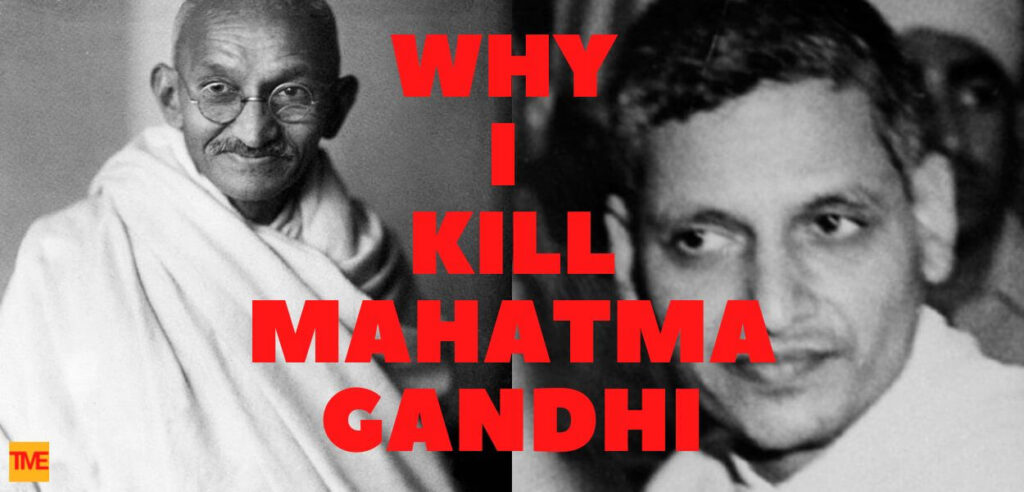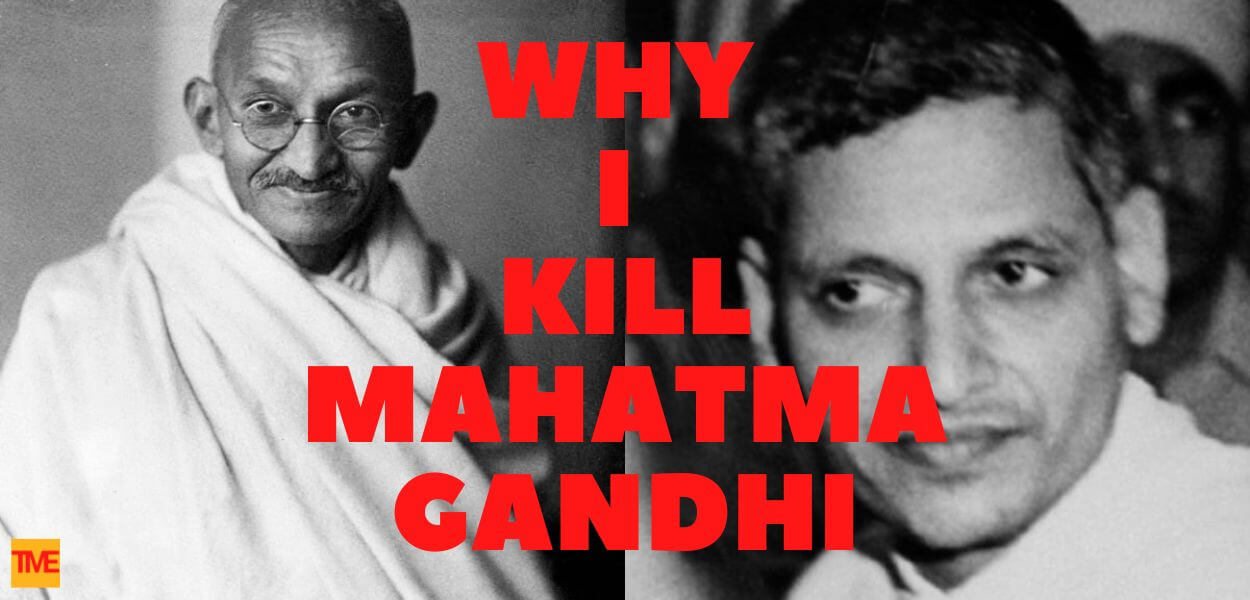“Why I Kill Mahatma Gandhi” is an article based on Nathuram Godse last speech. In this speech he revealed the truth behind killing of mahatma gandhi, Nathuram Vinayak Godse was an Indian nationalist who assassinated Mahatma Gandhi, the leader of the Indian independence movement, on January 30, 1948. Godse, a member of the Hindu nationalist organization Rashtriya Swayamsevak Sangh (RSS), held Gandhi responsible for the partition of India and the resulting mass killings of Hindus and Muslims. He believed that Gandhi’s policies and actions were a betrayal of Hindu interests and a threat to the survival of the Hindu community. He felt that Gandhi’s advocacy for nonviolence and reconciliation with Muslims was putting Hindus at risk and believed that only a strong, assertive Hindu nationalist stance could protect the Hindu community.

Why I Kill Mahatma Gandhi in details
Nathuram Vinayak Godse was an Indian nationalist who assassinated Mahatma Gandhi, the leader of the Indian independence movement, on January 30, 1948. Godse, a member of the Hindu nationalist organization Rashtriya Swayamsevak Sangh (RSS), held Gandhi responsible for the partition of India and the resulting mass killings of Hindus and Muslims.
Godse had been deeply influenced by the teachings of Vinayak Damodar Savarkar, a Hindu nationalist leader who advocated for the use of violence against British colonial rule. Savarkar’s ideas of Hindutva, or “Hinduness,” emphasized the primacy of Hindu culture and identity, and rejected the idea of a secular, pluralistic India.
Godse and his fellow RSS members were deeply frustrated with Gandhi’s leadership during the independence movement, which they felt had not gone far enough in protecting the rights and interests of Hindus. They were particularly angered by Gandhi’s advocacy for nonviolence and his efforts to reconcile with Muslim leaders, which they saw as a betrayal of Hindu interests.
In the years leading up to Gandhi’s assassination, Godse and other members of the RSS had become increasingly vocal in their criticism of Gandhi and his policies. They accused him of appeasing Muslims and of being too soft on the British. Godse himself had attempted to kill Gandhi on several occasions, and had even made a failed attempt on his life in January 1948.
On January 30, 1948, Godse finally succeeded in his mission, shooting Gandhi three times at point-blank range as he was preparing to lead a prayer meeting in New Delhi. The assassination sent shockwaves through India and the world, and led to widespread protests and riots.
Godse was arrested and tried for murder. During his trial, he defended his actions by claiming that he had acted out of a sense of duty to protect the rights and interests of Hindus. He argued that Gandhi’s policies had failed to protect Hindus from violence and discrimination, and that his own actions were a necessary response to this perceived betrayal.
Godse was found guilty and sentenced to death. He was hanged on November 15, 1949.
The assassination of Mahatma Gandhi remains one of the most controversial and polarizing events in Indian history. While some saw Godse as a patriot who had acted out of a sense of duty to protect Hindu interests, others viewed him as a terrorist who had committed a heinous act of violence.
In the years since Gandhi’s death, the RSS and other Hindu nationalist groups have sought to downplay Godse’s role in the assassination and to portray him as a patriot who was simply reacting to the perceived threats to Hindu interests. However, many Indians continue to view Godse as a murderer and a symbol of the divisive and violent politics that have plagued India in the years since independence.
Conclusion of Why I Kill Mahatma Gandhi
Overall, Nathuram Godse killed Mahatma Gandhi because of his belief that Gandhi’s policies and actions were a betrayal of Hindu interests and a threat to the survival of the Hindu community. He felt that Gandhi’s advocacy for nonviolence and reconciliation with Muslims was putting Hindus at risk and believed that only a strong, assertive Hindu nationalism stance could protect the Hindu community. His actions were a reflection of the divisive and violent politics that have plagued India in the years since independence.
follow us for more
follow us for hindi Join now
